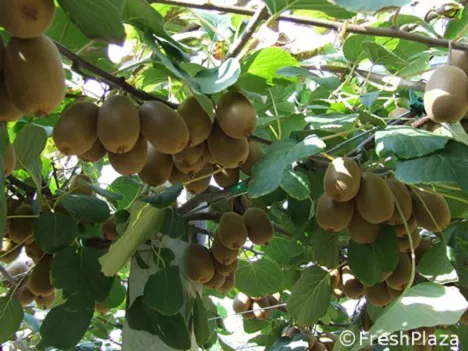The bacterial canker of kiwifruit caused by Pseudomonas syringae pv. actinidiae (Psa) is a serious disease that threatens the global kiwifruit industry. In many areas copper treatments are used to control the disease, however planting resistant cultivars is considered as one of the most effective ways to control Psa.

"Most existing cultivars lack Psa‐resistance genes, while wild Actinidia resources contain rich genetic diversity and may have powerful disease‐resistance genes under long‐term natural selection - explain the scientists of Guangxi Institute of Botany (China). "We studied the response to Psa of 104 wild genotypes of 30 Actinidia species (including 37 taxa). This is the first large‐scale evaluation of diverse Actinidia species with resistance to Psa through an in vitro bio-assay. A considerable number of individuals from different species with tolerance or high resistance to Psa were identified. The results have showed both high consistency between years and the A. chinensis resistant genotypes identified could be used in future kiwifruit improvement programmes."
Source: Fa‐Ming Wang, Quan‐Hui Mo, Kai‐Yu Ye, Hong‐Juan Gong, Bei‐Bei Qi, Ping‐Ping Liu, Qiao‐Sheng Jiang, Jie‐Wei Li, 'Evaluation of the wild Actinidia germplasm for resistance to Pseudomonas syringae pv. actinidiae', 2020, Plant Pathogy.
